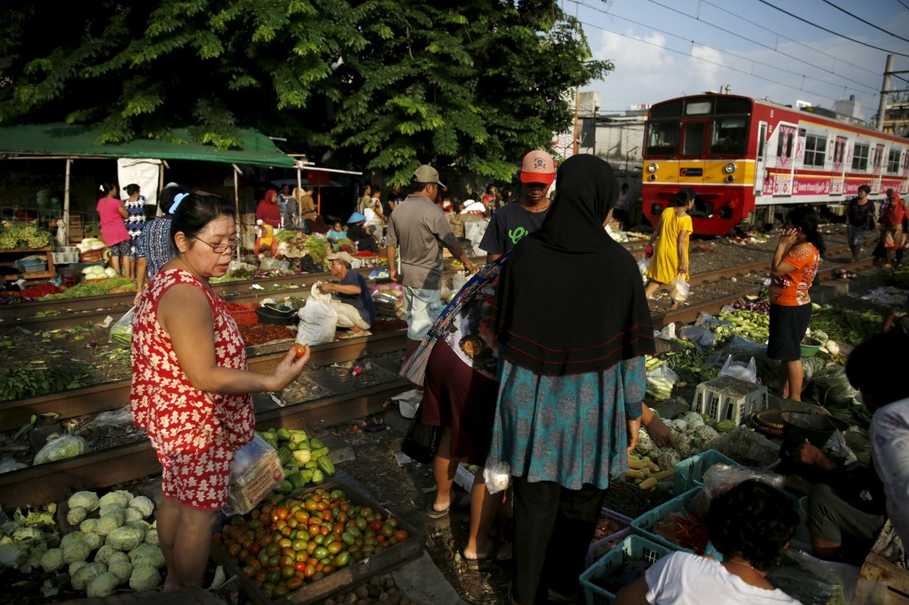
The central bank said Indonesia’s widening current-account and trade deficits until the middle of the second quarter of this year should not be seen as indications that the country’s economy is overheating or growing beyond its capacity.
The country’s trade deficit grew to $2.38 billion between January and May, which is expected to raise the current-account deficit to between 2.5 percent and 3 percent of gross domestic product in the second quarter, according to Bank Indonesia Deputy Governor Mirza Adityaswara.
Indonesia’s current-account deficit rose to 2.15 percent of GDP in the first quarter, compared with 1.7 percent last year.
“Actually, if we take out infrastructure imports, which are for long-term development, the trade balance in January-May was in surplus,” Mirza said on Tuesday (03/07).
Indonesia’s imports of infrastructure goods for development amounted to $4 billion, defense equipment to $1.1 billion and rice to $400 million in the period between January and May, Mirza said.
Separately, Finance Minister Sri Mulyani Indrawati said on Tuesday that the government would review its capital goods imports for infrastructure projects to lower the current-account deficit and support Indonesia’s financial markets.
The deficit exacerbated the rupiah’s decline, which has fallen by more than 6 percent against the US dollar so far this year, as foreign investors dumped Indonesian stocks and bonds in anticipation of higher interest rates in the United States and the growing prospect of a global trade war.
Bank Indonesia has risen its benchmark rate by 100 basis points in the past six weeks to stem the rupiah decline, but Enny Sri Hartati, director of the Institute for Development of Economics and Finance (Indef), said the rate hikes would only provide foreign investors with good returns in the short term.
“It’s not that we’re not supporting the interest rate hikes. Our current-account deficit is big and what helps [to balance it] is the capital account, but it’s very difficult to put our hopes on capital coming in from foreign direct investment,” she said.
Indef also noted that higher interest rates would curb economic growth, which is already suffering from weak domestic consumption and slow loan demand.
Domestic credit growth, which only rose 10.2 percent year-on-year and 2.93 percent year-to-date in May, also shows that Indonesia is still recovering from adverse global economic conditions. Credit growth rose to above 20 percent in 2013.
The central bank projected that Indonesia’s economy would grow at 5.2 percent this year, slower than the government’s projection of 5.4 percent as outlined in the 2018 state budget.
“If the current economic condition continues, we predict that it will not reach 5.2 percent by the end of the year, even with the Asian Games and the IMF-World Bank meeting the government seems to push as economic growth boosters,” said Rusli Abdulah, a researcher at Indef.